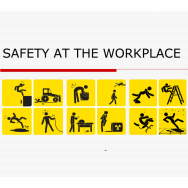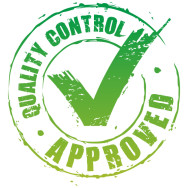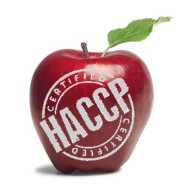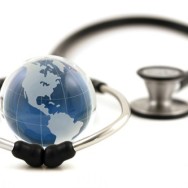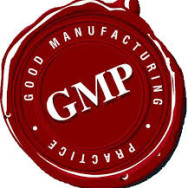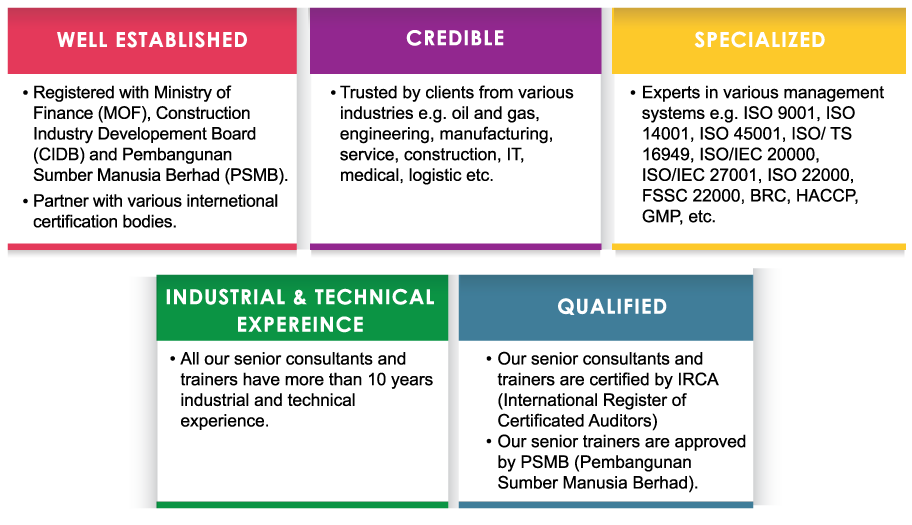ISO Standards
OHSAS 18001 Occupational Health & Safety Management System
OHSAS 18001 OHSAS 18001:2007 is the internationally recognised standard for occupational health and safety. It sets out the minimum requirements for occupational health and safety management best practice. Implementation of the standard enables organizations of any size and nature to manage operational health and safety risks to its business activities as well as increasing productivity by proactively preventing injury and ill health. The main occupational health & safety management system requirements consist of: Clause 4.1: General requirements Clause 4.2: Occupational health & safety policy Clause 4.3: Planning Clause 4.4: Implementation and operation Clause...
Read MoreISO 14001 Environmental Management System
ISO 14001 ISO 14001:2015 sets out the criteria for an environmental management system. It maps out a framework that a company or organization can follow to set up an effective environmental management system to help reduce the impact of its business to the environment. It also provides assurance to the company management as well as stakeholders of its commitment to monitor and measure its environmental performance. It can be used by any organization regardless of its activity or sector. The main environmental management system requirements consist of: Scope Normative Reference Terms and Definitions Context of the Organization Leadership Planning Support Operation...
Read MoreISO 9001 Quality Management System
ISO 9001:2015 sets out the criteria for a quality management system. It can be used by any organization of any size, of any industry and field of activity. There are over one million companies and organizations in over 170 countries certified to ISO 9001. This standard is based on a number of quality management principles including a strong customer focus, the motivation and implication of top management, the process approach and continual improvement. Using ISO 9001:2015 helps ensure that customers get consistent, good quality products and services, which in turn brings many business benefits. The 2015 version features important changes. It is now less...
Read MoreFSSC 22000 Food Safety Management System
FSSC 22000 version 3 (released in April 2013) is intended for food safety certification of manufacturing processes of food ingredients and food products, uses the ISO 22000:2005, related ISO/TS 22002 and PAS (Publicly Available Specification) 223 standards as its core requirements. The FSSC 22000 certification scheme is supported by the European Food and Drink Association (CIAA) and the American Groceries Manufacturing Association (GMA). It is also recognized by the Global Food Safety Initiative (GFSI) and Accreditation Bodies around the world. It is developed for the certification of food safety systems of organizations in the entire food chain that is involved in...
Read MoreHACCP Hazard Analysis and Critical Control Point
HACCP outlines the principles defining the requirements for effective control of food safety. The HACCP food safety management system help organizations focus on the hazards that affect food safety and systematically identify them by setting up critical control limits at critical control points during the food production process. The 7 principles of the HACCP system set the basis for the requirements for the application of HACCP, which are: Analysis of food hazards Identification of Critical Control Point (CCP) Establish critical limits Establish CCP monitoring system Establish corrective action when CCP is deviated from critical limit Verification to confirm HACCP...
Read MoreGDPMD Good Distribution Practice for Medical Devices
With the effective date (1 July 2013) of Act 737 and Medical Device Regulations 2012, manufacturers and distributors of medical devices are required to apply for their establishment licence to continue carrying out their manufacturing, distribution or importing activities. Manufacturers require ISO13485 Medical Devices Quality Management System certification whereas Distributors and Importers require Good Distribution Practice for Medical Devices (GDPMD) certification prior to applying for their Establishment Licence. There is a transition period of two years and one year respectively for the industry to submit applications for medical devices product registration and...
Read MoreISO 13485 Medical Devices Quality Management System
ISO 13485 ISO 13485:2016 specifies requirements for a quality management system where an organization needs to demonstrate its ability to provide medical devices and related services that consistently meet customer requirements and regulatory requirements applicable to medical devices and related services. The standard is applicable to all manufacturers and providers of medical devices, components, contract services and distribution of medical devices. Similarly with ISO 9001, the main requirements consist of: Clause 4: Quality management system Clause 5: Management responsibility Clause 6: Resource management Clause 7: Product realization Clause 8: Measurement,...
Read MoreGMP Good Manufacturing Practice For Food Industry
Good Manufacturing Practices (GMP) is a pre-requisite program (PRP) for Food Safety Management System. It outlines the minimum common hygiene and processing requirements applicable to all food processing establishment and intended as the foundation towards achieving higher food safety management systems like HACCP and ISO 22000. There are several guidelines outlining the GMP requirements, e.g. Design and layout of premises Supplies of water, air and energy Management of waste Equipment suitability and preventive maintenance Cleaning and sanitation Management of purchased materials Pest control Prevention of cross contamination Personal Hygiene Benefits of GMP...
Read More

